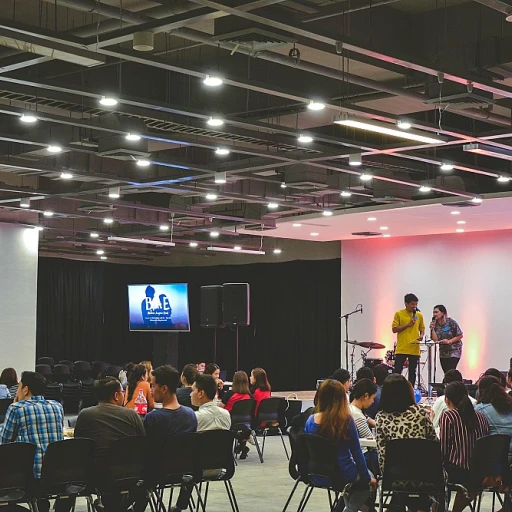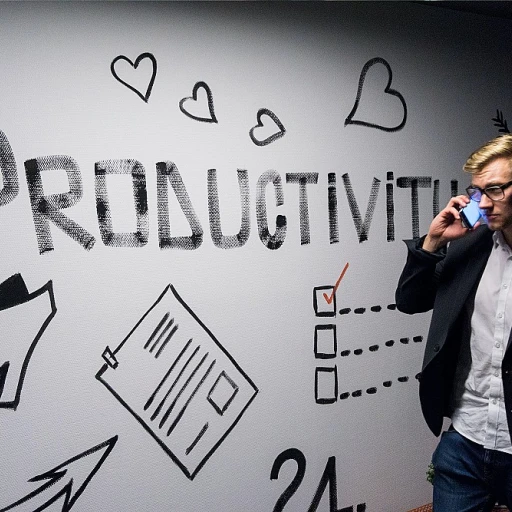
Understanding the Importance of Teamwork in Employer Branding
The Power of Teamwork in Fostering a Dynamic Workplace
Understanding the impact of teamwork within the context of employer branding is vital for fostering a dynamic and successful work environment. In today's competitive job market, companies must prioritize and recognize the collective efforts of their teams, as this can greatly influence both employee performance and retention. Team dynamics play a crucial role in achieving organizational goals, with effective communication and collaboration serving as the backbone of successful projects. Consistently fostering an environment where positive phrases and constructive feedback are standard practices can lead to immense improvements in team performance. By focusing on teamwork, organizations not only enhance their brand image but also create a workplace where employees feel valued and motivated. This sense of belonging leads to heightened employee engagement, which, in turn, results in sustainable business growth and long-term success. To delve deeper into how understanding the power of teamwork can enhance employee engagement and contribute to People Management success, explore effective strategies in people management.Crafting Effective Teamwork Performance Review Phrases
Constructing Teamwork Performance Language
Creating effective feedback for teamwork performance reviews requires a delicate balance between being honest and supportive. This process is crucial in fostering a cooperative work environment and enhancing team dynamics. Effective teamwork appraisal focuses on collaboration and communication, emphasizing how these elements contribute to achieving team goals. Here are some specific examples of review phrases that can be utilized during performance evaluations:- "Demonstrates strong team skills consistently, contributing positively to our team success."
- "Exhibits effective communication, ensuring team members are aligned and informed."
- "Maintains a constructive attitude during team discussions, which enhances problem-solving capabilities."
- "Shows dedication to collaboration, making every effort to improve the team's work environment."
Common Pitfalls in Teamwork Performance Reviews
Recognizing the Challenges in Teamwork Appraisals
When navigating the intricate landscape of teamwork performance reviews, several common pitfalls can impede the process, undermining the very objective of fostering collaboration and enhancing team success. Avoiding these pitfalls is crucial in creating an environment conducive to positive communication and employee growth. Firstly, a focus on solely individual achievements can skew the perception of team dynamics. While individual skills and contributions are vital, an unbalanced emphasis can detract from the collective team goals. Instead, recognizing team achievements and how each member contributes can foster a collaborative spirit. Additionally, vague and non-specific feedback often leads to confusion rather than clarity. Team members require concrete examples and phrases to understand how to improve and enhance their contributions to the team's success. For instance, instead of saying, "Good job on the project," provide constructive feedback such as, "Your time management and problem-solving skills significantly accelerated the completion of the project, contributing to a positive team environment." Another frequent issue is sporadic reviews, which can hinder continuous improvement. Consistently incorporating feedback throughout the year, rather than during annual reviews, keeps the team engaged and aware of ongoing expectations and goals. Regular team discussions ensure that performance reviews are not merely a procedural obligation but a valuable tool for ongoing development. Moreover, overlooking the nuances of team dynamics can derail review effectiveness. It's essential to understand team members' unique roles and how their interactions influence overall performance. Addressing any communication or collaboration issues with constructive feedback can help align team efforts. Finally, framing feedback in a positive manner is critical. While constructive comments are necessary, highlighting what works well can motivate team members to continue those practices. Positive phrases should underscore successes and reinforce desired behaviors. Ultimately, being mindful of these challenges and proactively addressing them can transform team performance reviews into opportunities for enhancement, aligning with future trends in teamwork evaluation and ensuring employee retention. For more insights into creating a supportive work environment, consider exploring enhancing employee benefits in architectural firms.Incorporating Feedback for Continuous Improvement
Listening and Learning: The Heartbeat of Improvement
In any team setting, feedback serves as an essential platform for improvement. Encouraging team members to engage in open dialogue inherently supports the collective aim towards stronger collaboration and elevated performance outcomes.- Constructive Feedback: Performance reviews offer an opportunity to deliver constructive feedback. Tailored review phrases can effectively spotlight both strengths and areas needing enhancement. Comments such as, "Your proactive approach consistently brings positive energy to the team," can motivate employees to keep up the momentum.
- Positive Reinforcement: It’s vital to balance feedback with positive comments. Recognizing achievements and acknowledging how team members contribute to team success molds a positive work environment. Example phrases include, "Your dedication to team goals sets a standard for effective communication and collaboration."
- Facilitating Growth: Employees often respond well to examples of how they can improve or expand their skills. Incorporating suggestions for development with actionable strategies can foster personal and professional growth, which ultimately benefits the team dynamic.
- Emphasizing Communication: A key component of successful teamwork performance is effective communication. Phrases highlighting exemplary communication efforts, such as "Your ability to articulate ideas clearly during team discussions has enhanced our problem-solving capabilities," acknowledge this critical component.
The Role of Teamwork in Employee Retention
Fostering Retention through Team Success
The role of teamwork in employee retention cannot be understated. A cohesive and effective team not only boosts performance but also promotes a positive work environment, crucial for retaining top talent. Team members who experience consistent success and collaboration are more likely to stay. To ensure teams are contributing positively to retention, it's important to focus on several key areas:- Communication and Collaboration: Strong communication skills are vital for any team. Encouraging open dialogue can lead to improved problem-solving and enhanced team dynamics.
- Constructive Feedback: Regular, constructive feedback helps employees understand their role within the team and where improvements can be made, ultimately leading to better team performance.
- Positive Phrases and Examples: Using positive phrases in performance reviews and regular discussions can bolster employee morale, reinforcing their place in the team and commitment to the organization's goals.
- Alignment with Organizational Goals: Ensuring that team goals align with the broader objectives of the organization can motivate employees by showing how their work contributes to the company's success.
Future Trends in Teamwork Evaluation
Emerging Trends in Teamwork Evaluation
As the landscape of work continues to evolve, so do the methods for evaluating teamwork. The future of teamwork evaluation is shaped by several key trends that are gaining traction in the realm of employer branding. These trends not only enhance the effectiveness of performance reviews but also contribute to a more dynamic and engaging work environment.
- Data-Driven Insights: Leveraging data analytics to assess team performance is becoming increasingly prevalent. By analyzing metrics related to team dynamics, communication, and collaboration, organizations can gain a deeper understanding of how teams function and where improvements can be made.
- Real-Time Feedback: The shift towards continuous feedback loops is transforming how performance reviews are conducted. Real-time feedback allows team members to address issues promptly and make adjustments to improve their performance consistently. This approach fosters a culture of openness and constructive feedback.
- Focus on Soft Skills: As highlighted in crafting effective teamwork performance review phrases, there is a growing emphasis on evaluating soft skills such as communication, problem-solving, and time management. These skills are crucial for team success and are increasingly being incorporated into performance appraisals.
- Personalized Review Comments: Tailoring review comments to individual team members helps in recognizing their unique contributions and areas for growth. Personalized feedback can motivate employees and enhance their engagement with team goals.
- Integration of Technology: The use of technology in performance reviews is on the rise. Tools that facilitate virtual team discussions and track performance metrics are becoming essential in providing a comprehensive view of team dynamics.
These trends underscore the importance of adapting performance review processes to meet the changing needs of the workforce. By embracing these innovations, organizations can not only improve team performance but also strengthen their employer brand, ultimately leading to higher employee retention and success.













